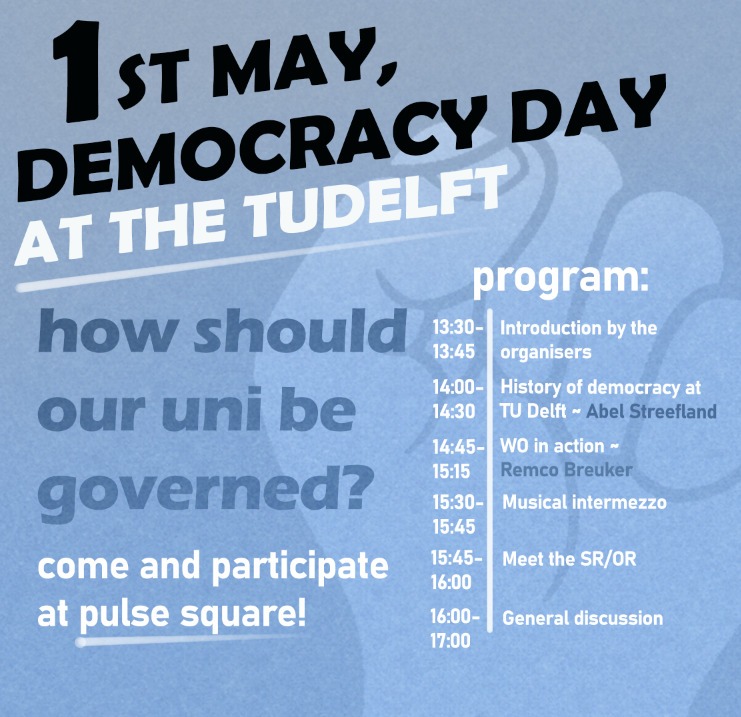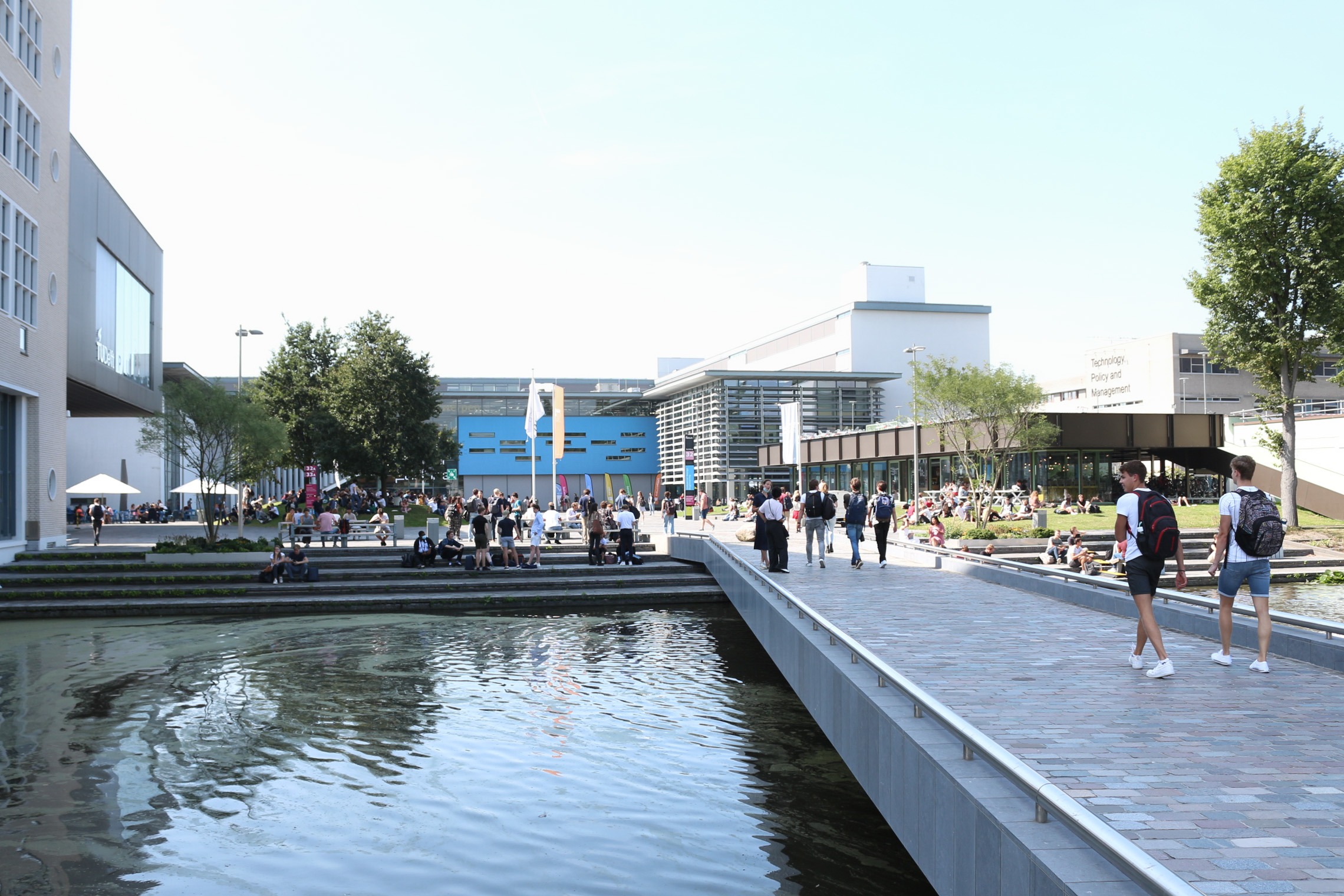During Democracy Day, TU Delft students and staff members can discuss how TU Delft is managed. A group of people from TU Delft is organising the event to see how TU Delft can be managed in a more democratic way.
Democracy Day takes place at Pulse Square inside Pulse (Photo: Justyna Botor).
Why may students and staff members no longer have a say in how decisions are taken about their university? And why does the Executive Board actually have so much authority? The organisers of Democracy Day on Wednesday afternoon 1 May hope to discuss these and other questions with as many students and staff members possible.
“I have the impression that we students and staff members allow ourselves to be walked all over,” says co-organiser Tom Twigt . He points out how universities in the Netherlands are currently being managed, with executive boards as the highest administrative body that are tasked with administering and managing them. Student councils and works councils have the right to information, the right to appeal, and the right of initiative and, in particular areas, the right of consent and the right to advise. At the faculty level, onderdeelcommissies and faculty student councils have the same rights, except for the right of appeal. “This means that lobbying is just about the only way in which TU Delft students or staff members can bring about any change,” says Twigt. “The Executive Board takes a decision and after that you can try to adjust it.”

University Council
Twigt explains that this used to be different. At TU Delft, it was the University Council that included students, academics and support staff, that had the most power for years. The Council made plans and the Executive Board could prepare and execute the decisions taken. A law put an end to this in 1997, after which the executive boards again had power. “As many students do not know this, we want to show that things can be done differently.”
The Democracy Day programme includes a reading by Abel Streefland, a university historian. Professor Remco Breuker (in Dutch) of the University of Leiden will also attend. As a member of WO in Actie and co-author of the ’40 stellingen over de wetenschap’ (40 statements about academia, in Dutch), he is one of the drivers behind the call for greater democracy at universities in the Netherlands. The third part of the programme will feature members of the Students Council and Works Council who will talk about the issues that they are currently facing. After an open discussion, the afternoon event will come to an end.
Once again
Twigt and his colleagues will also make sure that there will be plenty of room for discussion between the sections of the programme. “We hope that there will be a lot of interaction with the audience, such as with people from countries where universities are managed differently. We know that a few people from the Basque Country – which has a much longer tradition of more direct and deliberative democracy – will attend.”
If the afternoon is successful, Twigt and his co-organisers will hold a second Democracy Day on 31 May. The organisers are hoping that the meetings will be the start of a more democratic TU Delft. “No one in the current generation of students has voted for or chosen this system. Many students now were not even born in 1997. You cannot discuss what a more democratic university looks like in just one afternoon.”
- Democracy Day will start at 13:30 on Wednesday on Pulse Square.
- There is also an app group which you can join.
Do you have a question or comment about this article?
a.m.debruijn@tudelft.nl


Comments are closed.